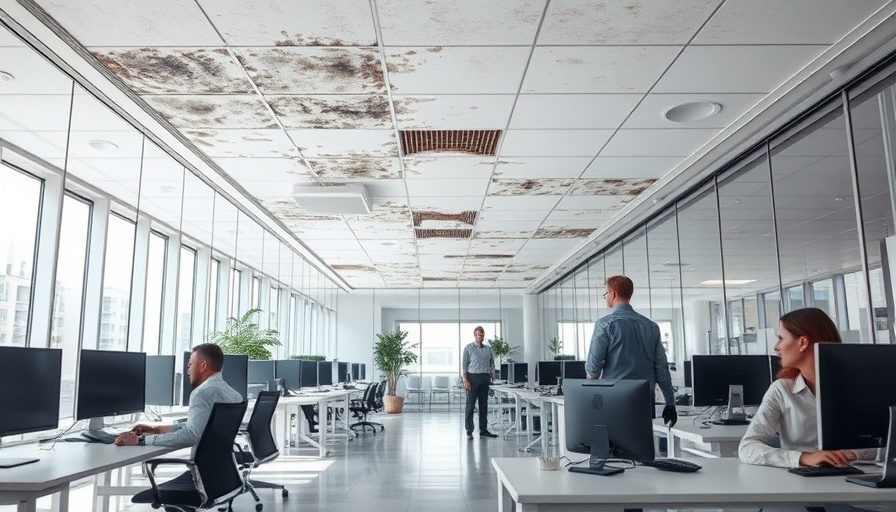
Mold Damage: A Hidden Threat to Your Business
Mold damage can be one of the most insidious types of property damage businesses can face. Not only can it lead to costly repairs but it can also disrupt daily operations and pose health risks to employees and customers alike. Understanding whether your commercial property insurance covers mold is essential for business owners, particularly in states like Wisconsin, where weather variations may inadvertently lead to mold growth.
Determining Insurance Coverage for Mold Damage
When it comes to mold damage coverage, the cause of the damage is paramount. Many policies will specifically exclude mold that arises due to maintenance neglect. However, if mold forms as a result of a sudden and unexpected event—like a burst pipe or storm damage—this may open the door to a valid claim. For example, during heavy rainstorms, many business owners may find previously unseen leaks that lead to mold development. In these cases, the damage could potentially be covered under insurance if adequate proof is provided.
Key Steps to Prove Your Claim
1. Review Your Policy Thoroughly: The first step in approaching a mold damage claim is to closely examine your commercial property insurance policy. Look for any exclusions specifically mentioning mold, bacteria, fungi, and the conditions under which endorsements might apply. Many policies, although they may seem restrictive, include various provisions that allow for mold coverage under certain circumstances.
2. Document Everything: If you discover mold, it’s vital to document the situation immediately. Capture clear photographs, gather inspection reports, and maintain records that show what caused the mold. For instance, if it was due to a plumbing mishap, invoices for repairs and cleanup should be included. This documentation will help demonstrate that the mold resulted from a covered peril.
3. Act Quickly: Timing is key when dealing with insurance companies. Insurers may argue that delays in addressing leaks caused mold growth, hence weakening your claim. By acting promptly to remedy the problem and reporting it to your insurance adjuster, you can bolster your case against potential delays that could be cited against you.
Navigating Common Pitfalls
It’s essential for business owners to be aware of common pitfalls in the insurance claims process. Many businesses might find themselves denied coverage due to failure in promptly reporting mold or adequately documenting its presence. Or worse, sensitive negotiations with adjusters could end unfavorably if business owners aren’t prepared with adequate evidence.
Another factor to consider is the emotional toll that mold damage can take. Businesses may feel overwhelmed by the thought of causing health concerns or facing financial loss. Understanding that these issues can often lead to disputes with insurance companies should motivate business owners to be proactive and organized in their claims process.
Conclusion: Protecting Your Business Interests
Knowledge truly is power when dealing with mold damage and your commercial property insurance. Being educated about the specifics of your policy and the types of coverage can protect you from unexpected costs down the line. Take the time to review your insurance and actively engage with your insurance adjuster to prevent potential claim denials.
For a detailed consultation on how to successfully file a claim for mold damage or any other commercial property concerns, don’t hesitate to reach out to experts who can guide you through the process and strengthen your position.
 Add Row
Add Row  Add
Add 




Write A Comment